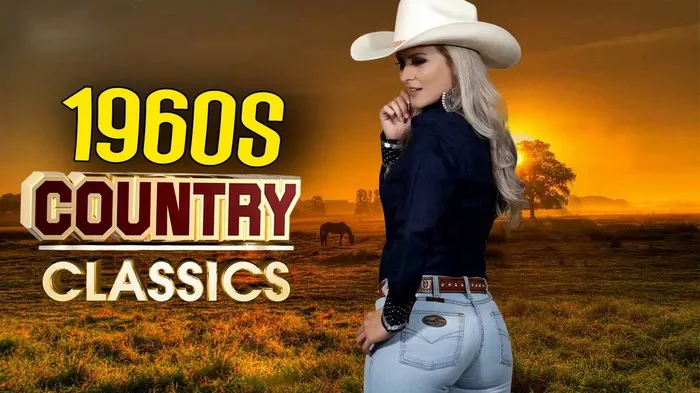In the vast and colorful tapestry of American musical history, few genres evoke the same sense of nostalgia, authenticity, and storytelling as country music. From its humble roots in rural America to its modern-day global influence, country music has captured the hearts of millions. But who can be credited with inventing this beloved genre? Let’s delve into the rich history of country music to uncover the pioneers and influencers who shaped its evolution.
Early Origins: Folk Traditions and Southern Sounds
1. Folk Roots: The Ballads of Appalachia
Country music’s origins can be traced back to the folk traditions of early settlers in the Appalachian region. These pioneers brought with them a rich musical heritage, including ballads and storytelling songs that reflected their everyday lives, struggles, and triumphs. The raw emotion and authenticity of these ballads laid the groundwork for what would later become known as country music.
2. Blues and Gospel Influences
In the Southern states, the blending of African American musical styles such as blues and gospel with traditional folk music created a unique sound that would later influence country music. Artists like Lead Belly and Blind Lemon Jefferson contributed to this fusion of musical genres, infusing country music with soulful melodies and heartfelt lyrics that resonated with audiences across cultural divides.
The Birth of Commercial Country Music
1. The Carter Family: Pioneers of the Genre
One of the most influential groups in the early days of country music was the Carter Family. Comprised of A.P. Carter, Sara Carter, and Maybelle Carter, this family band’s soulful harmonies and heartfelt lyrics resonated with audiences across America. Their recordings for the Victor Talking Machine Company helped popularize country music on a national scale, laying the foundation for the commercial success of the genre.
2. Jimmie Rodgers: The Singing Brakeman
Often referred to as the “Father of Country Music,” Jimmie Rodgers was a charismatic performer whose blend of blues, jazz, and traditional folk music created a new sound that defined early country music. Hits like “Blue Yodel” and “T for Texas” catapulted Rodgers to fame and solidified his legacy in the genre. His innovative use of yodeling and rhythmic guitar playing set him apart as a trailblazer in country music history.
The Golden Age of Country Music: Honky-Tonk and Western Swing
1. Hank Williams: A Country Icon
No discussion of country music’s origins would be complete without mentioning Hank Williams. His soulful voice, poignant songwriting, and heartfelt performances made him a legend in the genre. Songs like “Your Cheatin’ Heart” and “I’m So Lonesome I Could Cry” are timeless classics that continue to resonate with listeners today. Williams’ contributions to honky-tonk music and his ability to convey deep emotions through his songs solidified his status as a country icon.
2. Western Swing and Bob Wills
Western swing, a lively fusion of country, jazz, and big band music, gained popularity in the 1930s and 1940s thanks to artists like Bob Wills and His Texas Playboys. Wills’ energetic performances and infectious rhythms made western swing a favorite dancehall sound across the country. His innovative approach to blending different musical styles laid the groundwork for the diversity and experimentation seen in modern country music.
Evolution and Diversification: Country Goes Mainstream
1. The Nashville Sound: Countrypolitan Era
In the 1950s and 1960s, country music underwent a transformation with the emergence of the Nashville Sound. Artists like Patsy Cline, Jim Reeves, and Eddy Arnold brought a smoother, more polished sound to the genre, appealing to a broader audience and paving the way for country music’s mainstream success. The lush orchestration and sophisticated production techniques of the Nashville Sound marked a new era of professionalism in country music.
2. Outlaws and Rebels: The 1970s and Beyond
The 1970s saw the rise of outlaw country, a subgenre characterized by raw lyrics, rebellious attitudes, and a rejection of Nashville’s commercialism. Icons like Willie Nelson, Waylon Jennings, and Johnny Cash challenged the status quo and redefined what it meant to be a country artist. Their authenticity and willingness to push boundaries attracted a loyal fanbase and inspired a new generation of musicians to explore alternative sounds within the country music landscape.
Modern Trends and Global Impact
1. Country Pop and Crossover Success
In recent decades, country music has continued to evolve, embracing elements of pop, rock, and hip-hop to reach new audiences. Artists like Taylor Swift, Keith Urban, and Carrie Underwood have achieved crossover success, blurring the lines between genres and expanding the reach of country music on a global scale. Their ability to blend traditional country storytelling with contemporary production techniques has made them influential figures in shaping the modern country music scene.
2. Diversity and Innovation
Today, country music is more diverse than ever, with artists from various backgrounds and musical styles contributing to its rich tapestry. From traditional honky-tonk to contemporary country-rock fusion, the genre remains a vibrant and ever-evolving force in the music industry. Artists like Kacey Musgraves, Lil Nas X, and Maren Morris are pushing boundaries and challenging stereotypes, showcasing the genre’s capacity for innovation and inclusivity.
Conclusion
While it’s impossible to pinpoint a single individual or moment as the sole inventor of country music, it’s clear that a multitude of artists, influences, and cultural currents have shaped its development. From humble beginnings in rural America to global stardom, country music’s journey is a testament to the power of storytelling, authenticity, and the enduring appeal of heartfelt melodies.
As we continue to celebrate the legacy of country music, we honor the trailblazers, innovators, and storytellers who have contributed to its rich tapestry, ensuring that the genre remains a cherished part of our musical heritage for generations to come.

